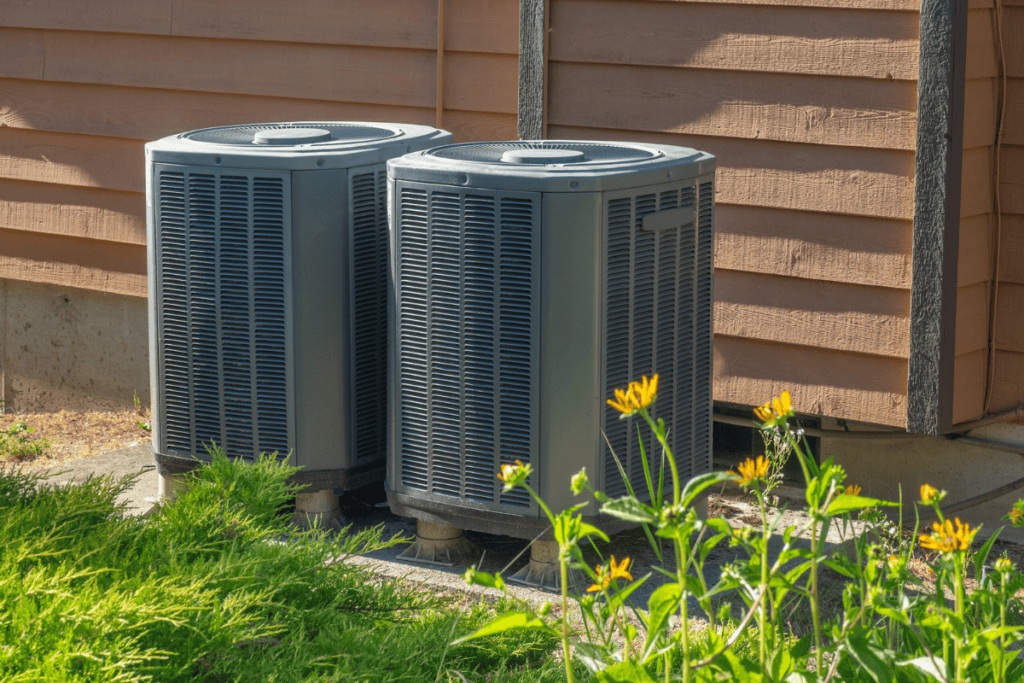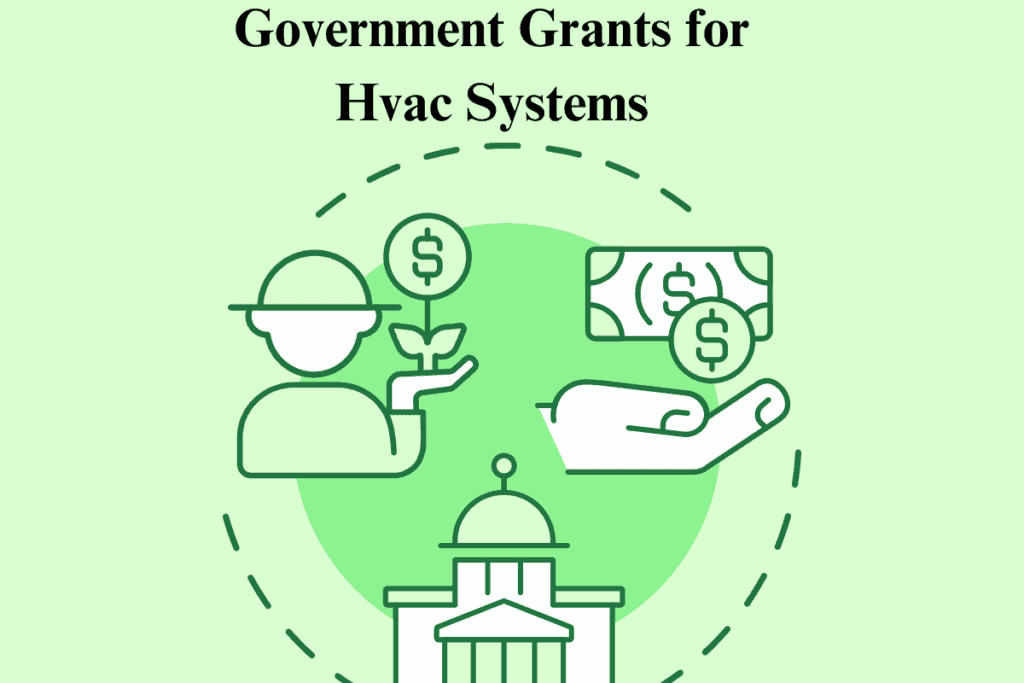You’re at home, seeking refuge from the heat, when suddenly a thunderstorm rolls in. The sky darkens, the wind howls, and lightning strikes. Amidst the chaos, a question arises: is it ok to run your air conditioner during this weather?
Running your AC during a thunderstorm raises valid concerns, especially when it comes to the risk of lightning strikes and potential damage to your electrical system. With an estimated 25 million cloud-to-ground lightning strikes occurring annually in the United States, the threat is real and demands to turn off your ac.
During lightning up to five billion joules of energy can be transmitted through the wiring in your home before the breakers are activated to trip – during this split second, the surge can result in significant harm.
In this article, we’ll discuss the risks associated with operating your air conditioner during a thunderstorm and provide expert guidance on whether it is safe to run your ac during a rainstorm.
Contents
- 1 How Can You Run Your Window AC Safely During Thunderstorms?
- 2 Safety Measures For Air Conditioners During Thunderstorms
- 3 Alternative Cooling Options
- 4 Contact HVAC Angel For AC Maintenance Due To Thunderstorms
- 5 Frequently Asked Questions
- 5.1 1. Do window air conditioners attract lightning?
- 5.2 2. How to protect AC from lightning?
- 5.3 3. Can a power surge damage an air conditioner?
- 5.4 4. Is it safe to use a surge protector with my window AC unit during a thunderstorm?
- 5.5 5. Can a thunderstorm cause damage to my window AC unit even if it’s turned off?
How Can You Run Your Window AC Safely During Thunderstorms?
1. Electrical hazards
Thunderstorms can lead to power surges, which may damage electronic devices like AC units. Lightning strikes during storms pose a significant risk to electrical appliances, including air conditioners. Electrical outages caused by thunderstorms can disrupt the operation of AC units and other devices.
Lightning strikes can carry up to 100 million volts of electricity and reach temperatures of 50,000 degrees Fahrenheit, posing a serious threat to your HVAC system and your home’s electrical system.
2. Water damage
Window AC units are exposed to the elements and may be susceptible to water infiltration during heavy rain. Wind-driven rain associated with thunderstorms can penetrate AC units, leading to water damage to internal components and the risk of standing water. Water infiltration can cause short circuits, corrosion, and other issues that may impair the unit’s performance and longevity.
3. Personal safety
Operating electrical appliances, such as air conditioners, during thunderstorms increases the risk of injury due to lightning strikes or other hazardous conditions. Handling wet electrical devices, including AC units, during thunderstorms poses a risk of electric shock.
4. Structural damage
Strong winds and hail associated with thunderstorms can cause structural damage to buildings, potentially affecting the stability and integrity of AC units installed in windows or on rooftops.
5. Fire hazard
Lightning strikes or electrical malfunctions during thunderstorms can ignite fires, posing a risk to property and occupants, including AC units. Lightning is responsible for an estimated 25,000 fires and $450 million in property damage each year in the United States, highlighting the importance of a properly functioning electrical panel and surge protection for your heating and cooling units.
Safety Measures For Air Conditioners During Thunderstorms
1. Unplugging the unit
Unplug the window AC unit during thunderstorms to mitigate the risk of damage from power surges or lightning strikes. This precaution helps protect the unit’s electronic components from electrical hazards associated with storms, including the safeguarding of the electrical panel from surges. Turning off your air conditioner can significantly reduce the risk of damage caused by sudden voltage spikes.
2. Using surge protectors
Install surge protectors to safeguard window AC units and other electronic devices from damage caused by power surges. Surge protectors help divert excess voltage away from connected devices, reducing the risk of damage during thunderstorms.
Surge protectors are designed to absorb and dissipate excess voltage, providing added protection for sensitive electrical equipment. Incorporating surge protectors into your home’s electrical setup can greatly minimize the risk of damage to your air conditioner and other appliances during thunderstorms.
3. Securing the unit
Ensure that the window AC unit is securely installed and properly sealed to minimize the risk of water infiltration during storms. Check for gaps or openings around the unit’s installation area and seal them with weatherproof materials to prevent water ingress. Properly sealing your AC unit can help prevent water from seeping into the unit and causing damage to its internal components.
4. Monitoring weather conditions
Stay informed about weather forecasts and warnings, and avoid operating the AC unit if severe weather is imminent. Pay attention to thunderstorm alerts and advisories issued by local weather authorities, and take appropriate precautions for personal safety. If severe weather is expected, it’s best to err on the side of caution and refrain from running your AC unit altogether.
Alternative Cooling Options
1. Temporary cessation
Pause the use of the window AC unit during thunderstorms to avoid potential damage and safety hazards. Utilize alternative cooling methods, such as natural ventilation or fans, until the storm passes and conditions improve.
Opening windows and doors can allow fresh air to circulate throughout your home, providing a natural cooling effect. Using fans can help create a cooling sensation by promoting air movement and evaporation.
2. Emergency cooling measures
In situations where AC is essential for health or safety reasons, consider alternative power sources like portable generators to keep the unit running during power outages. Battery-operated fans can provide temporary relief in areas where traditional cooling methods are unavailable or impractical. When using generators, follow proper safety guidelines and ensure adequate ventilation to prevent carbon monoxide buildup.
3. Evaporative cooling
Explore the use of evaporative coolers, also known as swamp coolers, as an alternative to traditional AC units. Evaporative coolers use water evaporation to cool air, making them a cost-effective and energy-efficient cooling solution in dry climates.
Two-stage evaporative cooling uses only 10% of energy compared to conventional air conditioning while still providing up to 40 kW of cooling power.
4. Cooling shelters
Seek refuge in designated cooling shelters or public buildings equipped with air conditioning during severe thunderstorms or heatwaves. Cooling shelters provide a safe and comfortable environment for individuals to escape extreme temperatures and weather conditions.
5. Heat-resistant window treatments
Install heat-resistant window treatments, such as reflective window films or thermal curtains, to reduce solar heat gain and improve indoor comfort during hot weather. These treatments help block sunlight and reduce heat transfer through windows, reducing the need for intensive cooling measures like AC units.
In cooling seasons, about 76% of sunlight that falls on standard double-pane windows enters to become heat, making heat-resistant window treatments an effective way to keep your home cool and comfortable.
Contact HVAC Angel For AC Maintenance Due To Thunderstorms
When thunderstorms strike, the safety and functionality of your air conditioning system can be put at risk. From lightning damage to power surges, the potential hazards posed by severe weather conditions should not be overlooked. That’s where HVAC Angel comes in – your trusted partner in maintaining your AC unit remains in optimal condition, even in the face of nature’s fury.
At HVAC Angel, we understand the importance of prompt and professional assistance when it comes to maintaining your air conditioner after a thunderstorm. Our team of highly skilled technicians is equipped with the knowledge and tools to assess any damage, perform necessary repairs, and restore your AC unit to its pre-storm condition. With our expertise and dedication, you can have peace of mind knowing that your cooling system is in capable hands.
What sets HVAC Angel apart is our commitment to exceptional service and customer satisfaction. We prioritize your comfort and safety above all else, and our technicians go above and beyond to address your specific needs.
Whether you require a thorough inspection of your AC unit, a comprehensive repair, or guidance on preventive measures, including managing your thermostat for efficient running during a thunderstorm, we are here to help. Trust HVAC Angel to be your guardian of cool, comfortable air, no matter what storms may come your way.
Frequently Asked Questions
1. Do window air conditioners attract lightning?
While window air conditioners themselves do not attract lightning, they can become a target if lightning strikes nearby. The metal components and electrical wiring of the AC unit can provide a path for the lightning to reach the ground, potentially causing damage to the unit and your home’s electrical system.
2. How to protect AC from lightning?
To protect your air conditioner from lightning strikes, consider installing a whole-house surge protector or individual surge protectors for your AC unit. Additionally, unplugging your window unit during a thunderstorm can provide an extra layer of protection. Maintaining proper grounding and installing lightning rods on your home can also help redirect lightning strikes away from your AC system.
3. Can a power surge damage an air conditioner?
Yes, power surges caused by lightning strikes or other electrical disturbances can damage the sensitive electrical components within your air conditioner. Surges can cause short-circuiting, burnout of the compressor, or damage to the control board, potentially leading to costly repairs or the need for a complete unit replacement.
4. Is it safe to use a surge protector with my window AC unit during a thunderstorm?
Using a high-quality surge protector specifically designed for air conditioners can provide an added layer of protection against power surges. However, it’s important to note that surge protectors don’t offer complete protection against direct lightning strikes. For optimal safety, it’s still recommended to unplug your window unit during a thunderstorm.
5. Can a thunderstorm cause damage to my window AC unit even if it’s turned off?
Yes, even if your window AC unit is turned off, a nearby lightning strike carrying 5 billion joules of energy can still cause damage, thus inspecting the unit post-storm is critical. The electrical surge generated by lightning can travel through power lines and enter your home’s electrical system, potentially damaging connected appliances, including your air conditioner. To minimize the risk of damage, unplugging your window unit during a thunderstorm is advisable, though once inspected, it may be considered safe to run.

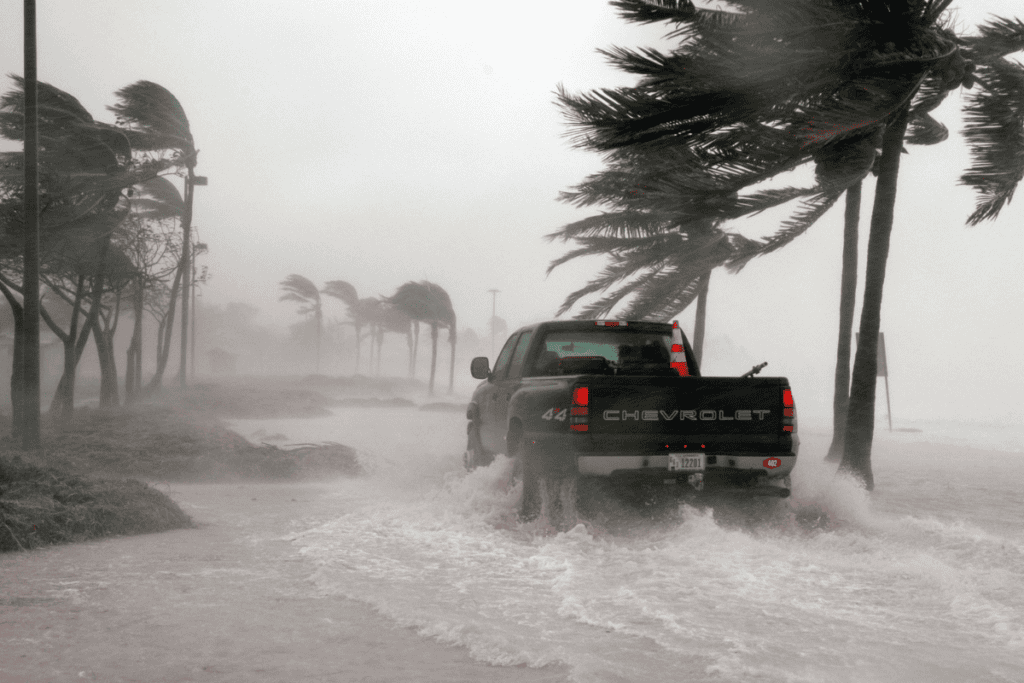

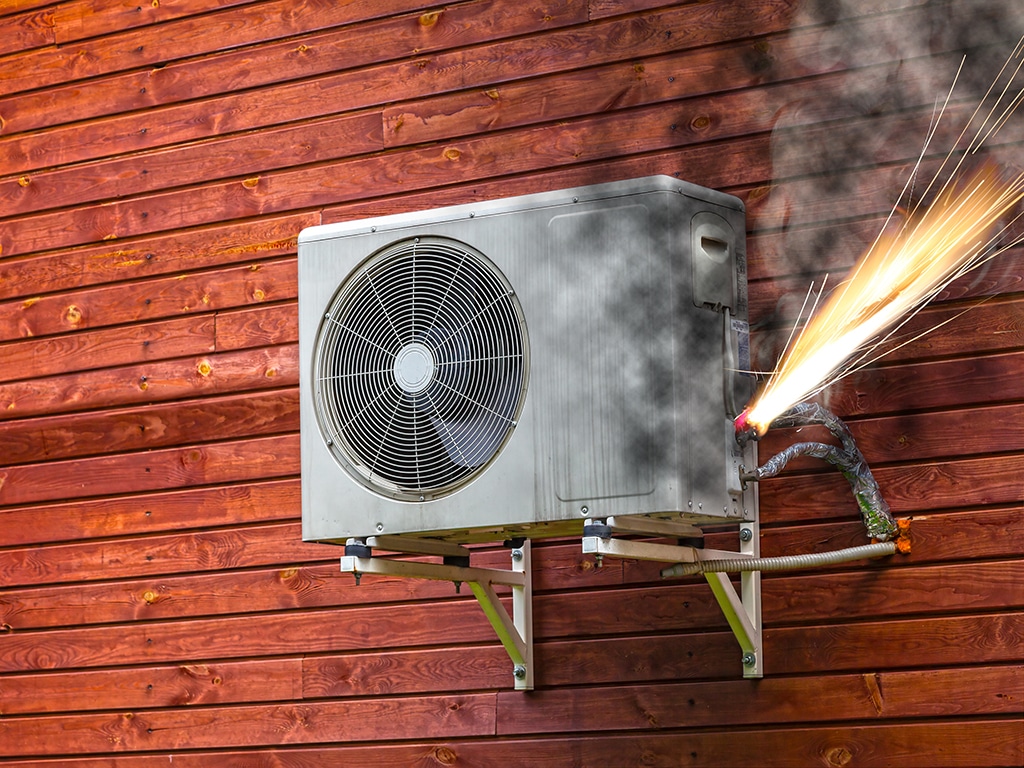
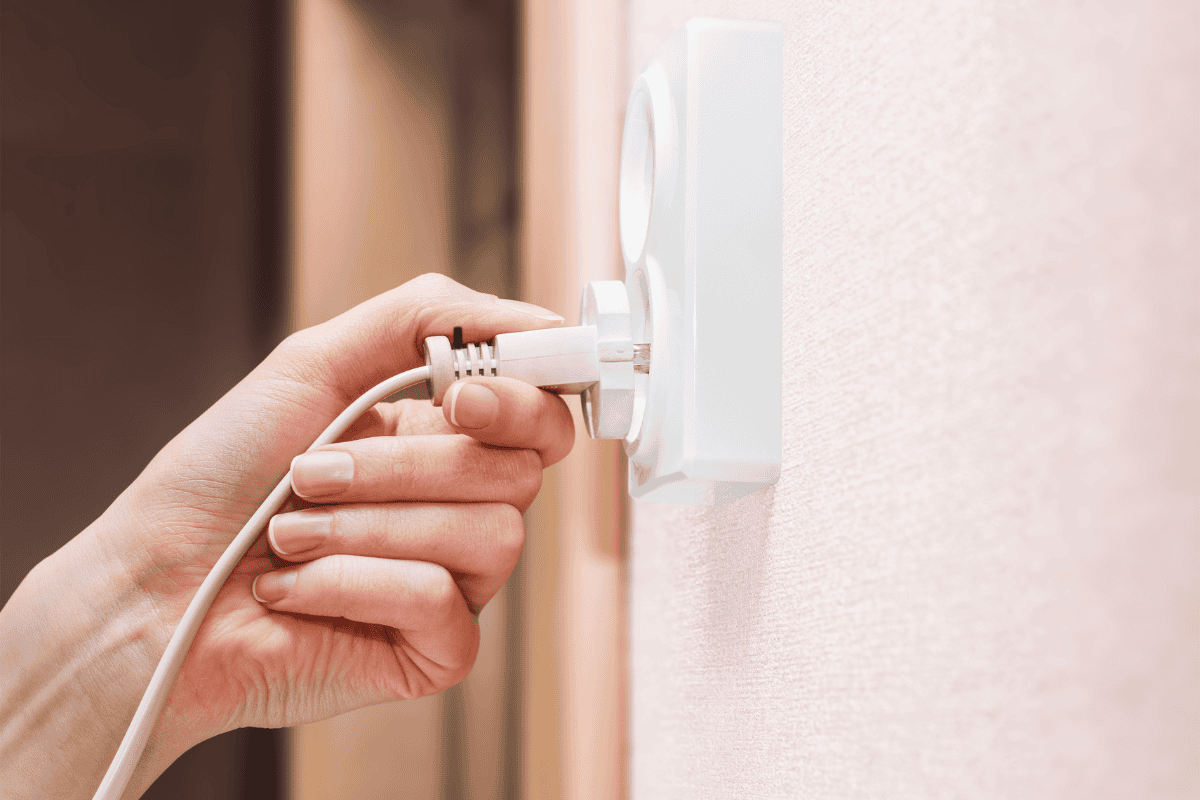
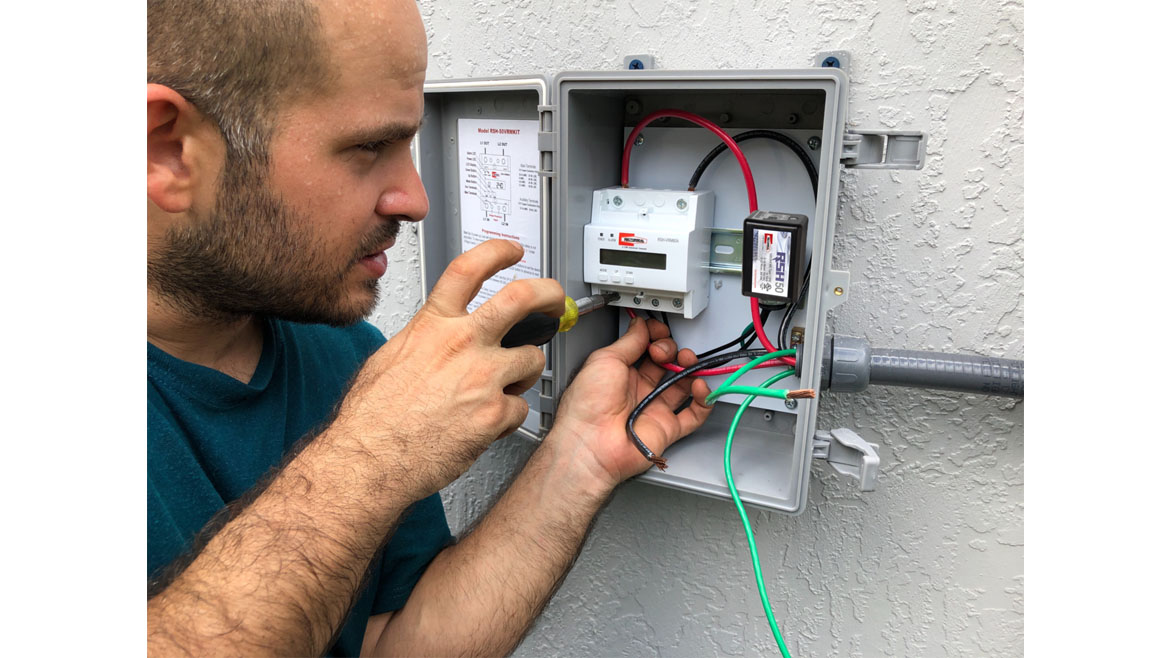

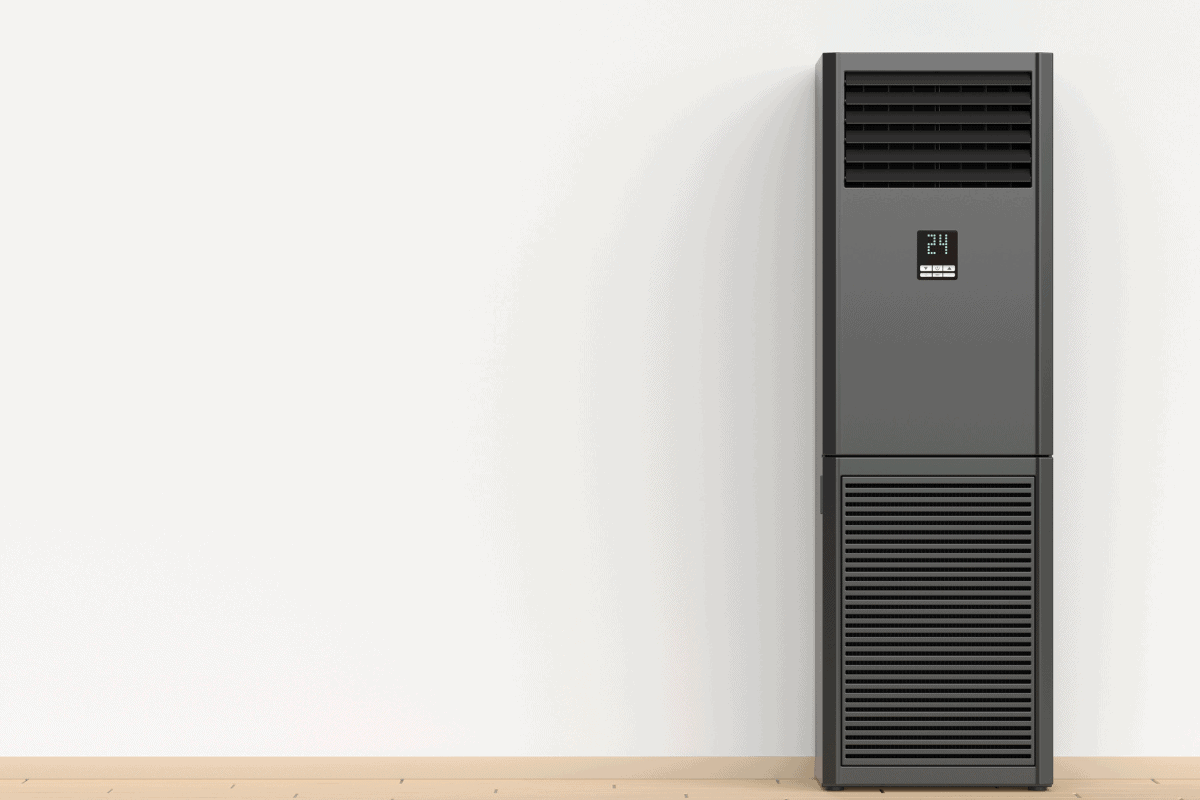
![9 Reasons That Causes an AC Unit to Freeze Up: [Troubleshooting Guide]](https://hvacangel.com/wp-content/uploads/2024/05/what-causes-a-ac-unit-to-freeze-up-1024x683.png)
